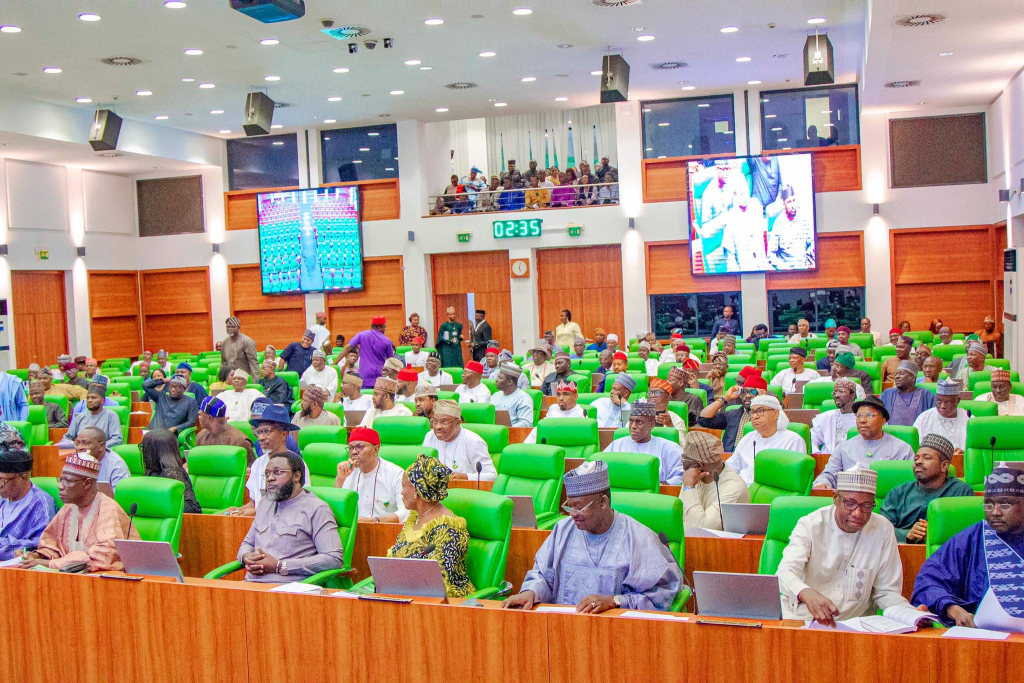…as APC slices rivals by 54 lawmakers
Current Party Composition of the House of Representatives
Political Party Number of Seats Percentage of Total Seats (360) Position
APC 231 64.3% Majority
PDP 83 23.0% Main Opp
LP 22 6.1% Minority
NNPP 15 4.2% Minority
APGA 5 1.4% Minority
SDP 2 0.6% Minority
ADC 1 0.3% Minority
YPP 1 0.3% Minority
Total = 360 (100%)
By Gift ChapiOdekina, Abuja
When the 10th National Assembly was inaugurated in June 2023, the political landscape of the House of Representatives reflected the outcome of the fiercely contested 2023 general elections.
The composition revealed a multiparty parliament with the All Progressives Congress (APC) retaining majority control but with significant inroads by newer parties such as the Labour Party (LP) and the New Nigeria Peoples Party (NNPP), reflecting voter appetite for broader political diversity.
About 29 months later, defections, court rulings, and bye-elections have altered the original balance. The current configuration still gives the APC a firm grip on the House, while opposition parties continue to play active roles in legislative debates and oversight.
Party Composition: Then and Now (June 2023 – October 2025)
Political Party / Seats in June 2023 (Inauguration) / Current Seats (October 2025) / Change / Status – Remarks
APC / 178 / 232 / +54 / Benefits from defections, court victories, and bye-elections; retains majority control
PDP / 118 / 83 / -35 / Loses members to APC and other smaller parties; weakened opposition influence
LP / 34 / 22 / -12 / Experiences internal disputes and some defections; remains strong in South-East and urban centres
NNPP / 19 / 15 / -4 / Loses seats following court verdicts and cross-party movements
APGA / 5 / 5 / 0 / Stable; maintains stronghold in Anambra and parts of the South-East
SDP / 2 / 2 / 0 / Maintains status mostly in the North-Central constituencies
ADC / 2 / 1 / -1 – Reduced presence due to defections
YPP / 3 / 1 / -2 – Loses ground following alliance realignments
Total 360
Trends and Dynamics since Inception
- APC’s Expanding Dominance
At inauguration in June 2023, the APC held 178 seats, short of the two-thirds majority. However, through strategic political realignments, court rulings, and high-profile defections, the party now commands 232 seats, giving it overwhelming control of the House.
This expansion has allowed the APC to solidify its grip on leadership positions, legislative committees, and policy direction. The majority status ensures that most executive bills from President Bola Tinubu’s administration pass with minimal resistance.
- PDP’s Shrinking Opposition Role
The PDP, which started with 118 seats, has seen its representation drop to 83. Internal divisions, leadership crises, and defections to the ruling party have weakened its once formidable presence.
Despite this, the PDP remains the official opposition, often taking strong stances on fiscal policies, insecurity, and governance issues. Its influence now depends largely on strategic collaboration with smaller parties.
- LP and NNPP: Rise, Challenges, and Decline
The LP) and NNPP emerged from the 2023 elections as fresh alternatives, buoyed by youth enthusiasm and regional popularity. LP’s 34 seats and NNPP’s 19 initially positioned them as critical voices for reform and regional advocacy.
However, post-election litigations and internal party rifts have eroded their numbers to 22 and 15 seats, respectively. Both still hold symbolic influence, especially on issues concerning electoral reform, youth empowerment, and regional equity.
- Minor Parties and Pluralism
Smaller parties such as APGA, SDP, ADC, and YPP collectively account for less than 3% of the chamber. While their legislative weight is limited, they contribute to Nigeria’s growing pluralism and often serve as swing votes during contentious deliberations.
Their presence also reflects localized political strength rather than national spread.
Legislative Implications
The APC’s majority translates to legislative stability and alignment with the executive, but it also raises concerns about reduced checks and balances.
The opposition bloc, though fragmented, has continued to push for accountability, debate national budgetary priorities, and challenge executive excesses. The ability of opposition members to form coalitions or work across party lines will determine how effectively they can influence legislation going forward.
Meanwhile, increased defections and court-driven seat changes underscore Nigeria’s fluid party system, where political allegiance often shifts in response to electoral opportunities and leadership interests.
The post The opposition haemorrhage in the House of Reps appeared first on Vanguard News.

